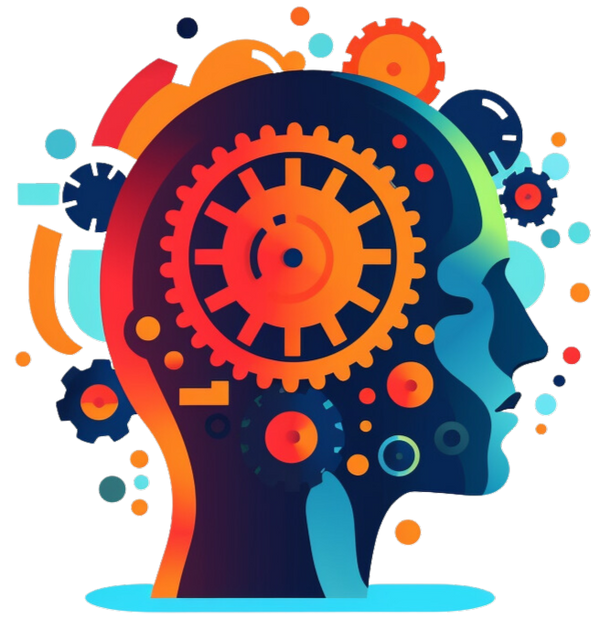
When the world gets too loud: Tips for more peace and quiet with ADHD and autism
Share
For many children with ADHD or autism, the chaos of everyday noise becomes a challenge. With the right tricks and an understanding of their sensory processing, everyday life can be made easier.
Noise sensitivity is one of the lesser-known symptoms of ADHD and autism. This is because it often takes a back seat to more noticeable behaviors such as restlessness or concentration problems and is rarely explicitly diagnosed. Yet, for many affected individuals, it is omnipresent. Scientifically, it is explained by overactive stimulus processing in the brain, or rather, the older parts of the brain . Normal everyday sounds—a humming refrigerator, children playing, even raindrops, a fly—are sometimes perceived so intensely that they become stressful.

With ADHD, the sounds collide with an already fast-paced world of thoughts . Every little thing is distracting, every sudden noise becomes a focus. With autism, especially those on the Asperger spectrum, a deeper level of processing comes into play. The world not only sounds loud, it feels downright uncontrollable for those affected.
Everyday life with noise sensitivity
The challenges often begin early in the morning. The mess at the breakfast table or sudden noises in the house act like a shrill alarm bell for neurodiverse people.
Things aren't getting any easier at school. Squeaking chalk, the hum of a fan, loud laughter—all of it is distracting or feels like it's penetrating your skin.
At work, it's large offices, ringing telephones, or construction noise that make the day a misery. But at home, too, there's hardly any peace and quiet. Even harmless sounds, like a dripping faucet, can seem overwhelming. Those affected often withdraw to avoid being constantly irritated or exhausted.

Practical strategies and tools
The right tools can work wonders. Active noise-cancelling headphones (ANC) effectively dampen noise and create small pockets of calm. White noise , for example, from apps, blocks out unpleasant sounds and calms the brain. Or, of course, natural sounds that you personally find pleasant, such as the ocean, a stream, wind, etc. ANCs combat noise with counter-noise , which cancels it out or at least significantly dampens it – just as waves in water often flatten each other out.
The environment also plays a role . Carpets dampen footsteps, curtains absorb sound, and well-sealed windows keep traffic noise out.
Mindfulness helps when other tools aren't enough. A simple exercise: Focus consciously on inhaling and exhaling for a few breaths. Count to four, pause briefly, and then exhale slowly. This calms you down and helps reduce stress. Focusing on a calming image, socializing with friends—or taking a short break in a quiet room—can reduce stress levels.

Noise sensitivity in children
Children with ADHD or autism need understanding above all else. A sudden tantrum over loud music or an uncomfortable jacket is not a reaction of defiance. Parents can remain calm and signal to the child that their feelings are being taken seriously . Simple questions like "Is it too loud?" or "Would you like to take a break?" can help ease the situation.
Places of retreat offer protection . A quiet room with a cozy blanket and favorite toys gives children a sense of security. At school, small adjustments can help: earplugs, a seat by the window, or the right to take a break when needed.
Playful tools like squeezable balls or colorful headphones make it easier to cope with sensory overload. It's important that children feel that they're not "wrong"—they're just perceiving the world more intensely.

The emotional side of noise sensitivity
Overstimulation is more than stress. It deeply affects the emotional world. Some children and adults react with sudden anger or sadness. Others withdraw . This is because the constant noise feels like an attack on their own security.
Self-acceptance helps here. Those affected don't need to "toughen up" to survive in a noisy world. Instead, it helps to take themselves seriously and respect their personal boundaries. Those around them should also learn to be considerate and not judge seemingly "excessive" reactions .

Sunny sides of sensory sensitivity
Sound sensitivity also has its advantages. World-renowned pianist Glenn Gould , who exhibited many features of autism, used his exceptional hearing to create unparalleled interpretations of classical music. Justin Timberlake, who lives with ADHD, also impresses with his musical versatility and his ability to intuitively grasp melodies and rhythms .
Their exceptional hearing enables neurodivergent musicians, sound engineers, and artists to work at a high level. Not only do they hear and sense more intensely, they can also transfer this intensity into their singing and compositions.
Those who hear every detail appreciate silence all the more. This often makes neurodiverse people finely tuned sensors for harmony —both in nature and in interpersonal relationships.

